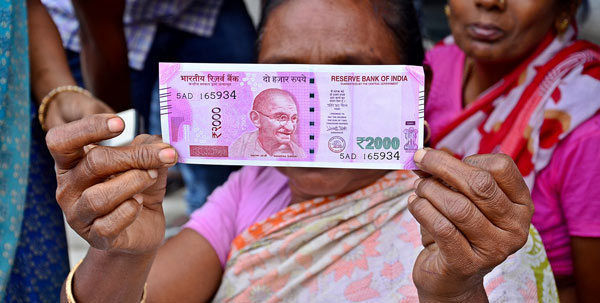
Taxation Laws (Second Amendment) Bill, 2016 introduced in Lok Sabha
It also puts a disproportionate burden on the honest taxpayers who have to bear the brunt of higher taxes to make up for the revenue leakage.
As a step forward to curb black money, bank notes of existing series of denomination of the value of Rs.500 and Rs.1000 [Specified Bank Notes(SBN)] have been recently withdrawn the Reserve Bank of India.
Concerns have been raised that some of the existing provisions of the Income-tax Act, 1961 (the Act) can possibly be used for concealing black money. The Taxation Laws (Second Amendment) Bill, 2016 (‘the Bill’) has been introduced in the Parliament to amend the provisions of the Act to ensure that defaulting assessees are subjected to tax at a higher rate and stringent penalty provision, read a government statement.
Further, in the wake of declaring specified bank notes “as not legal tender”, there have been suggestions from experts that instead of allowing people to find illegal ways of converting their black money into black again, the Government should give them an opportunity to pay taxes with heavy penalty and allow them to come clean so that not only the Government gets additional revenue for undertaking activities for the welfare of the poor but also the remaining part of the declared income legitimately comes into the formal economy.
In this backdrop, an alternative Scheme namely, ‘Taxation and Investment Regime for Pradhan Mantri Garib Kalyan Yojana, 2016’ (PMGKY) has been proposed in the Bill.
The declarant under this regime shall be required to pay tax @ 30% of the undisclosed income, and penalty @10% of the undisclosed income. Further, a surcharge to be called ‘Pradhan Mantri Garib Kalyan Cess’ @33% of tax is also proposed to be levied, read a statement.
In addition to tax, surcharge and penalty (totaling to approximately 50%), the declarant shall have to deposit 25% of undisclosed income in a Deposit Scheme to be notified by the RBI under the ‘Pradhan Mantri Garib Kalyan Deposit Scheme, 2016’, read the statement.
This amount is proposed to be utilised for the schemes of irrigation, housing, toilets, infrastructure, primary education, primary health, livelihood, etc., so that there is justice and equality.
Support Our Journalism
We cannot do without you.. your contribution supports unbiased journalism
IBNS is not driven by any ism- not wokeism, not racism, not skewed secularism, not hyper right-wing or left liberal ideals, nor by any hardline religious beliefs or hyper nationalism. We want to serve you good old objective news, as they are. We do not judge or preach. We let people decide for themselves. We only try to present factual and well-sourced news.







